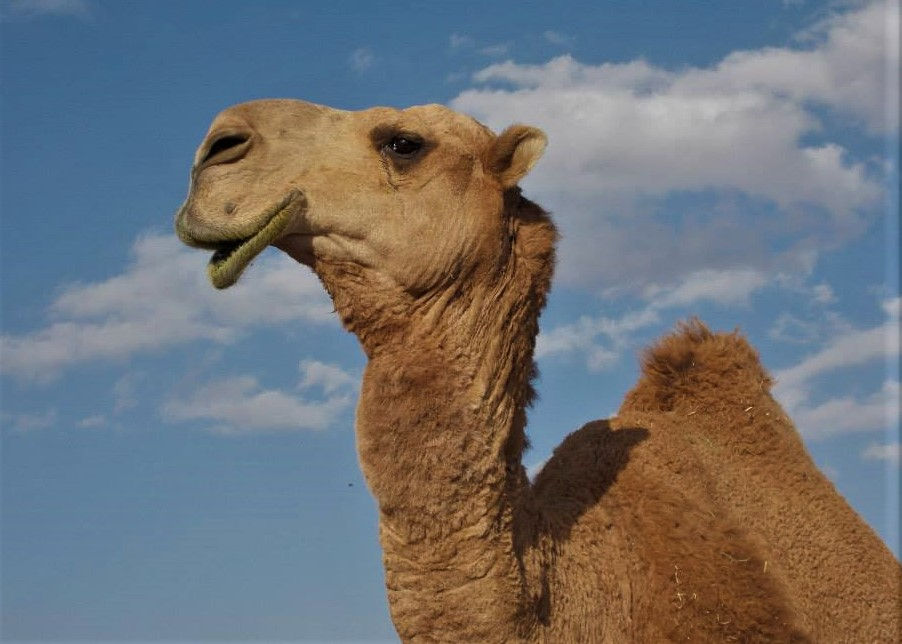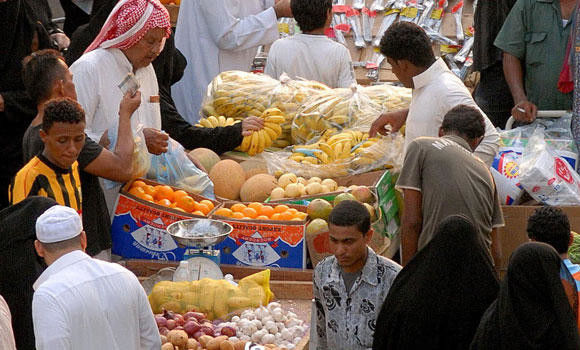Al Khobar: searching for Saudi food in mythical Al Khobar
- Matthew P G

- Nov 21, 2021
- 4 min read
Updated: Mar 17, 2023

Al Khobar Traditional Village Restaurant, Al Khobar, Saudi Arabia. November 2014
At Java Beans, my regular cafe in Abha, I met a group of young medical students who were nearing the end of their study. All of them spoke excellent English, most of them had traveled outside of the Kingdom, and most importantly, they were all liberal-minded young adults who were keen to show me that Saudi Arabia was "really not all that bad". After a year of knowing them, some finished their studies and were off to do internships. King Khalid University has a medical school without an attached university hospital, so interns have to find a position on their own somewhere in the country. A couple of these guys ended up in Dammam, on the Persian Gulf.
A tri-city area, Dammam is the center of the oil industry with a huge port. Dhahran immediately south of Dammam hosts ARAMCO, the Saudi state oil company and a couple big universities. Al Khobar is right next to Dammam and Dharan on the coast that faces the island Kingdom of Bahrain. The causeway connecting the two countries extends out from Al Khobar. Most importantly, Saudis all wax lyrical about Al Khobar. In ultra-conservative Saudi Arabia, Al Khobar is more "open" than the rest of the country due to the oil industry and the number of foreigners there. "You will love Al Khobar, Matthew. It is nothing like Abha. You will feel like you are back in the USA". I heard this refrain for a full year before I visited. Al Khobar was somewhere between the musical "Oklahoma"'s Kansas City and the poet Coleridge's Xanadu. Finally, since I had friends there and a reason to visit, I booked a weekend in Dammam to experience the glory of "Al Khobar".
Al Khobar is a new city on the Persian Gulf. A landscaped Corniche (seaside esplanade) and a string of restaurants and cafes face the sea. Otherwise, this was still Saudi Arabia - mostly guys walking around outside, women totally covered, men and women seated separately, and places closed for prayer time. I joked with my friends after visiting that Al Khobar was just as if Khamis Mushait (Abha's less glamorous sister city) had been put on the sea with a Starbucks and a Taco Bell. I overwhelmingly felt "what is the big deal??" Of course, I was happy to visit another part of Saudi Arabia AND to be on the sea, but this was a severe case of the build up not coming remotely close to my level of expectation. Al Khobar sucked.
MS, my friend from Abha, took me around the area and showed me a splendid time. Nothing beats Saudi hospitality. One evening I was taken to the Al Khobar Traditional Restaurant for dinner by him and other friends and it did not disappoint. They all knew I liked trying traditional foods, so we went somewhere that specialized in Saudi meals. This kind of restaurant is NOT that common because my friends explained, " who wants to go out for homestyle food if it's available at home and might taste better?" Finding "real" Saudi food at a restaurant is actually a difficult thing.
A red vintage car was parked outside the faux-traditional building. I looked at it dubiously, but MS explained the car represented early Saudi history just after the discovery of oil where cars like that were a symbol of "new wealth". It kind of made sense - before that time, there might not have been any restaurants, period. The interior was decorated in a "pan Arab" way with a mish mash of ornaments from all over the region - over the top, but it worked. We went into a room and sat on a floor strewn with pillows and carpets. The food was ordered and I waited curiously.
My only request was that we NOT eat "kabsa", the Saudi national dish, because it was the only Saudi food I had eaten repeatedly after a year of living there. What arrived was called "Tharid",** a meat (lamb) stew served over bread. The effect was that the traditional flatbread (hard leftovers) flattened and became almost like Chinese hor fun noodles. I even asked if it was pasta when I first saw it. It showed great imagination and utility for repurposing homemade bread that quickly hardens after baking. Arab flatbread is meant to be eaten right out of the oven. Even an hour later it doesn't taste as good. There must have always been leftover bread and in the days when Saudis were poor and resourceful, this dish represented "nothing goes to waste". I thought it tasted lovely, PLUS I was sitting in a very traditional Arabic style room, and I was in the company of good friends. Bonus fact: Tharid was a favorite of the Prophet Mohammed, so I was in good company with my taste. It remains one of my best food memories of Saudi Arabia.
The Kingdom of Saudi Arabia is a food nexus given its geographic position not to mention hosting a major, worldwide pilgrimage site. Most restaurant food is foreign or at least not "Saudi". High end Arabic food tends to be Lebanese. Egyptian and Yemeni food have cheaper, delicious niches. The Palestinians dominate dessert with "kunafa". Then there is the African food "agashe" found in Jeddah imported from West Africa via Sudan. Add to all of this, non-Middle Eastern chains like Nando's, Chili's, Cheesecake Factory, and Eataly. Fast food is ubiquitous. Saudi Arabia can at times be a "food desert", but generally in big cities nearly everything is available, except ironically, Saudi food itself.
The experience gives me pause to think about the evolution of food and restaurants in my own lifetime. When I was a child, restaurants touted food that was just as good as "homemade". Later in life, supermarkets sold food that was just as good as a "restaurant". Europe now exalts its regional cuisines. The USA is on this same trajectory, already there in some places. What of Saudi Arabia? In years to come will Saudis dine on local delicacies passed down from their grandmothers in high end restaurants? For now, visitors should try to pass on the kabsa and search for something more interesting.
**NB: AQ, my source for all things Saudi, informs me that Tharid is called Marqooq locally in Abha and when his mother makes it, she bakes a specific bread for it. It IS, however, a pan-Arab dish eaten outside of Saudi Arabia and probably has many variations. The search for true Saudi food continues....



Comments